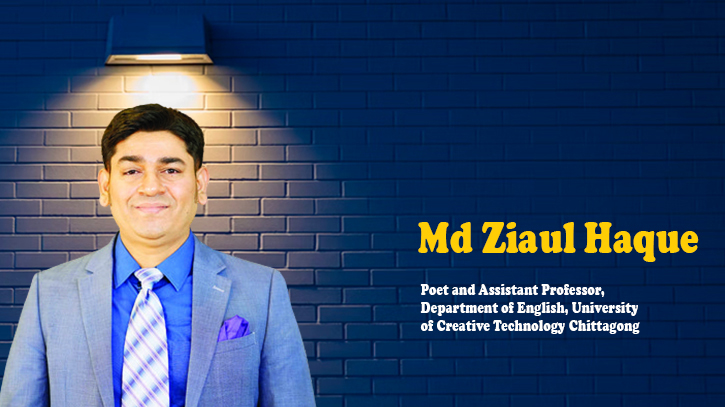
Photo: Messenger
The education system in Bangladesh is confronted with a multitude of challenges that impede its advancement towards offering high-quality and inclusive education to all. A key issue is the insufficient availability of resources and infrastructure, leading to overcrowded classrooms and limited access to educational materials. Furthermore, the disparity in educational opportunities between rural and urban areas exacerbates inequalities within the system. The prevalent examination-focused culture in Bangladesh places significant pressure on students from a young age, emphasising rote memorization over the development of critical thinking skills. This conventional approach often stifles creativity and innovation among students, hindering their overall growth and readiness for a rapidly changing global environment.
To effectively address these barriers, there is an urgent call for comprehensive reforms that prioritise student-centered learning methodologies, teacher training initiatives, and infrastructure enhancements at all educational levels in Bangladesh. Despite the government's dedication to education, financial constraints remain a major hurdle in the country. The education sector receives a modest portion of the national budget, limiting resources for infrastructure development, teacher training programs, and other crucial aspects of the education system.
Inadequate funding has led to congested classrooms, restricted access to textbooks and educational supplies, as well as deficient infrastructure like classrooms, libraries, and laboratories. Additionally, there is a shortage of competent teachers which poses a significant challenge to enhancing educational quality in Bangladesh. Many schools struggle to attract and retain qualified teachers, especially in rural areas. Moreover, teacher training programs often prove inadequate in adequately preparing educators for effective teaching.
Moreover, the absence of facilities such as computer labs and internet connectivity present a substantial barrier to equipping students for an increasingly digital world. Without access to modern technology and online resources, students are disadvantaged compared to their counterparts in more advanced educational systems. Closing this disparity necessitates substantial investments in upgrading infrastructure and providing essential tools to empower students with skills essential for success in today's digital era.
Education serves as the bedrock of societal advancement, yet numerous individuals encounter obstacles stemming from archaic educational content and ineffective pedagogical approaches. In Bangladesh, a pivotal concern arises from the disparity between the subjects taught to students and the competencies required for success in today's rapidly evolving landscape. The conventional method of rote learning falls short of nurturing critical thinking and problem-solving abilities crucial for thriving in contemporary times. Furthermore, the absence of practical application and real-world pertinence within the educational framework impedes students' comprehension of fundamental concepts. Educators, burdened by sizable class sizes and limited resources, may find it challenging to tailor their instructional methodologies to accommodate diverse learning styles. This underscores an urgent necessity for educational overhauls that prioritise innovative teaching strategies and update curricula to resonate with shifting global requisites.
Access to education stands as an intrinsic entitlement accessible to all; however, marginalised communities in Bangladesh encounter substantial impediments. Financial constraints pose a significant hurdle, as many families struggle to meet school expenses, procure uniforms, and acquire educational materials. This perpetual cycle of impoverishment constrains opportunities for children hailing from these communities. Additionally, entrenched cultural norms and biases can hinder girls' access to education or impede their attainment of equal scholastic opportunities compared to boys, further marginalising specific segments of society.
In recent times, the government has made notable progress in enhancing its educational framework through diverse endeavors. Notably, the Digital Bangladesh initiative seeks to broaden access to quality education via technological avenues. By introducing digital resources and online learning platforms, students across all regions now stand poised to benefit from a more interactive educational milieu. Moreover, by investing in educators' professional development, the government lays a robust groundwork for an empowered and proficient teaching cohort. Concurrently, efforts have been directed towards revamping curriculum structures and instructional methodologies in alignment with contemporary educational benchmarks and optimal practices.
In summation, Bangladesh's educational landscape presents both challenges and prospects for advancement. As the nation continues its investments in infrastructural enhancement and technology integration, significant strides towards augmenting education quality and accessibility appear feasible. Nevertheless, critical issues such as teacher caliber, curriculum pertinence, and socio-economic disparities demand attention to ensure equitable opportunities for all learners to excel.
In order to enhance the educational landscape in Bangladesh, it is advised to place a strong emphasis on enhancing the professional growth of educators through specialised training programs. This will elevate teaching standards and ensure a more effective learning environment. Furthermore, there is a need to reassess the curriculum to ensure it meets both global standards and local requirements. The implementation of fair policies that specifically cater to disadvantaged communities is also crucial. Moreover, forging partnerships between governmental bodies, non-profit organisations, and private enterprises can result in innovative solutions that collectively tackle systemic issues. By embracing a comprehensive approach that integrates various viewpoints and expert opinions, Bangladesh can lay the foundation for a more inclusive and efficient education system that benefits all its inhabitants.
The writer is a poet and an Assistant Professor, Department of English, University of Creative Technology Chittagong. He could be reached at [email protected].
Messenger/Fameema








